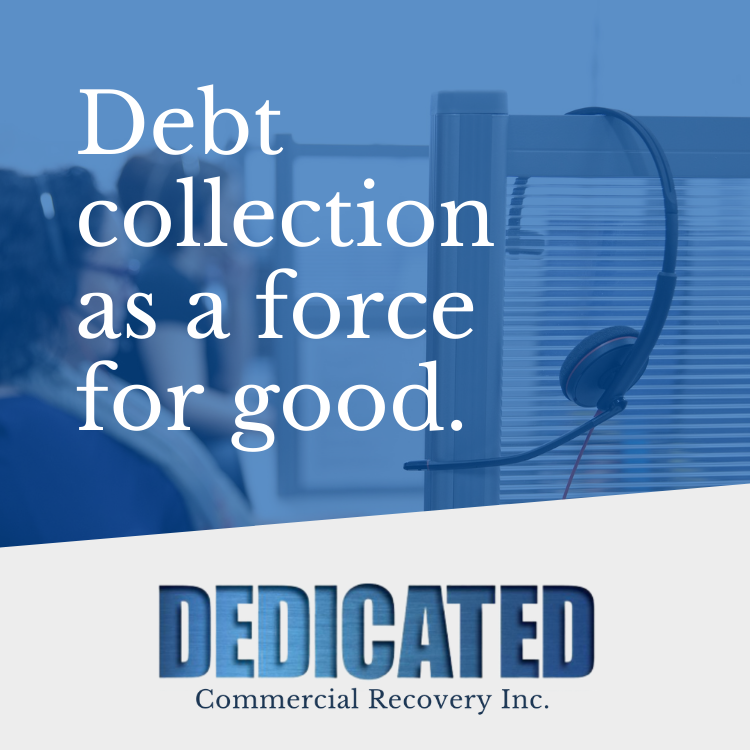Choosing a third-party commercial collection agency is of vital importance to any organization that extends funding or that provides Business-to-Business services on credit, including equipment finance companies, Merchant Cash Advance factors, and traditional commercial lenders.
While most companies choose a third-party commercial collection agency based upon the potential returns that a given agency might provide, it is also critical to consider the potential risks that are borne by such a choice.
AGENCY ETHICS
Perhaps the most fundamental risk arising from the choice of a third-party commercial collection agency is whether those involved will be honest, open, and transparent, both when interacting with you and when interacting with debtors on your behalf. That is, will the agency behave ethically?
Making this determination requires more than merely asking if they’re ethical. Consider that many well-known people of supposedly good character have been found to be ethically deficient once their unknown activities came to light. Their public persona didn’t control their actions when no one was looking.
So, when making a choice between agencies, do you want an agency that will be open, honest, and transparent with you only when you’re watching them, or open, honest, and transparent all the time in all of their dealings with you and with others?
Obviously, the latter is the much better–and ultimately safer–bet. You should want ethics in your business dealings, you should want to be surrounded by ethical people, and you therefore should want your agency to act ethically as well.
But how will you know before making your selection that an agency will act ethically?
That’s the critical question, and in order to answer it, consider the following:
Unless there’s something you know about tomorrow that will make it look different from today, most people would expect tomorrow to look pretty much the same as today, and they’d probably be right most of the time.
In other words, without some sort of information that indicates that the past will be different from the future in some meaningful way, the best indicator of how an agency will act tomorrow is how they act today and how they’ve acted in the past.
Therefore, if you want to know if an agency will act ethically, you should investigate whether they’ve acted ethically with others in the past.
• Ask for references from their other clients and check with your competitors if you’re comfortable doing so. Do they have a reputation for acting ethically, or are they known for pushing ethical boundaries to a point at which you feel uncomfortable.
• Look at their online reviews, including Glassdoor®, Google®, and social media. Subtract the bottom 10% (because you can’t please everyone) and get a sense of what online people complain about and what online people praise the agency for.
• Look at their history of regulatory and Better Business Bureau® complaints. (In fact, see if they are even a member of the Better Business Bureau®, which gives an indication that the agency is aligned with industry best practices and overall ethical standards.)
Again, subtract the bottom 10% (because you can’t please everyone) and get a sense of what people have felt about strongly enough to go the extra mile with their complaint.
• Look at their history of lawsuits. However, be careful of drawing strong negative conclusions unless the volume of suits seems high or the overall trend is clear and consistent. Unfortunately, imaginative attorneys have created an entire business model that is focused exclusively on the collection industry, so be cautious when drawing conclusions in this area.
Consider that someone filing a Better Business Bureau® complaint has no reasonable incentive other than to vent, receive an apology, or cause a change in perceived problematic business practices, whereas a plaintiff filing a lawsuit has the potential of receiving tens or even hundreds of thousands of dollars in damages for something as simple as alleging that they “heard a click and a pause” when they received a call, so the agency “must” have been using a predictive dialing system.
• Ask your peers for a review. Does the agency have a reputation for consistently “forgetting” to remit client balances, and then “apologizing” when their errors are discovered?
SUMMARY
In short, choosing a third-party commercial collection agency is a matter of comparing potential returns and risks in order to achieve an optimal balance of both, and the purpose of this article is to present one possible outline for making such a balanced choice.
Shawn Smith is the CEO and CFO of Dedicated Commercial Recovery Inc. Shawn is a trusted producer, manager, closer, and trainer in the Commercial Recovery Industry, and has built a reputation of excellence, professionalism, and passion in both his business and his personal life.
(612) 351-3945





Comments